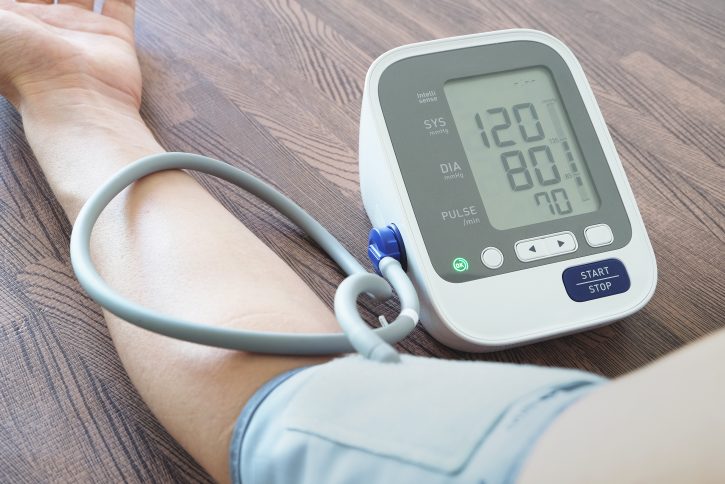
In today’s world, it can be difficult to separate fact from fiction, but it’s important to know which is which – especially when it comes to heart health.
Below, we’ll debunk some of the most popular (and misleading) blood pressure myths.
Blood Pressure: Myth vs. Fact
Myth: My blood pressure is only high when I’m at the doctor’s office.
- Fact: While it’s possible to have “white coat syndrome,” you should pay close attention if your blood pressure readings are consistently high. Check your blood pressure at home using a blood pressure cuff that has been approved by your healthcare provider, and keep a log of at-home readings to bring to your appointments.
Myth: My body has become tolerant of my blood pressure medication, and it has stopped working.
- Fact: If your blood pressure is rising despite taking your daily medication, talk to your doctor. It’s important to rule out changes in kidney or heart function, and sometimes additional medications will need added to your current prescription.
Myth: Everyone in my family has high blood pressure, so there’s nothing I can do to stop it.
- Fact: Knowing your family history is a great first step in managing and monitoring your health, but it doesn’t mean you should give up on prevention. Lifestyle changes, like frequent exercise and eating a heart-healthy diet, can help you offset your genetic risk.
Myth: I just need to find the “right” pill to control my blood pressure.
- Fact: People can respond differently to each class of blood pressure medication, and it’s common to use a combination of multiple types of blood pressure medication to achieve a healthy heart and minimize side effects. If a single pill isn’t the cure-all for your hypertension, don’t sweat it!
Myth: If I’m feeling poorly, it’s probably because my blood pressure is elevated.
- Fact: This is rarely the case. Typically, whatever is causing your symptoms is also causing the rise in your blood pressure, not the other way around. For example, if you’re sick or in pain, your body releases adrenaline, which then causes your blood pressure to rise.
Myth: My blood pressure is only high because I drink so much caffeine.
- Fact: Caffeine’s impact on the body, and particularly blood pressure, is still widely debated. According to some studies, the body does seem to become somewhat tolerant to the effects of caffeine when it’s consumed regularly, so the long-term effects on blood pressure are not well understood. For people who don’t consume caffeine regularly, a temporary rise in blood pressure may occur, but should normalize after a short time.In short, even the most dedicated coffee drinkers should take high blood pressure seriously.
Myth: I don’t use table salt, so I must be controlling my sodium intake enough to manage my blood pressure.
- Fact: Controlling sodium means more than just putting down the salt shaker. In fact, up to 75% of the sodium we consume is hidden in processed foods, such as tomato sauce, soups, canned foods, prepared mixes and condiments.
Read labels and watch for “salt,” “sodium” or the “Na” symbol on labels.
Myth: I feel fine. There’s no way I could have high blood pressure.
- Fact: While many of us associate outward symptoms – like sweating, facial flushing and anxious behavior – with high blood pressure, there are often no symptoms at all. It’s possible to live with high blood pressure for several years before experiencing symptoms – but that doesn’t mean it’s not causing damage. Hypertension is known as the “silent killer” because it can go undetected until severe health problems arise, like heart attack and stroke. That’s why it’s important to know your numbers and follow up with your healthcare provider on a regular basis.
Myth: My blood pressure readings have been normal since taking medication, so I no longer need it.
- Fact: Never change or discontinue your medications without speaking to your healthcare provider. And if your blood pressure has become normal since taking medication, that’s the perfect reason to continue it! Hypertension can be a chronic condition, meaning it lasts the duration of your lifetime. You should plan to work closely with your primary care provider and cardiologist to manage it. If you have recently made healthy lifestyle changes – like losing a significant amount of weight, for example – check in with your care team about how to best manage your heart health.
Source: American Heart Association